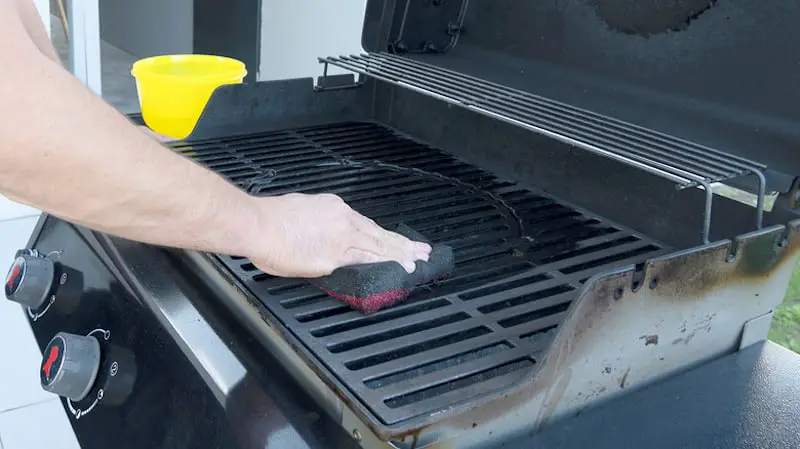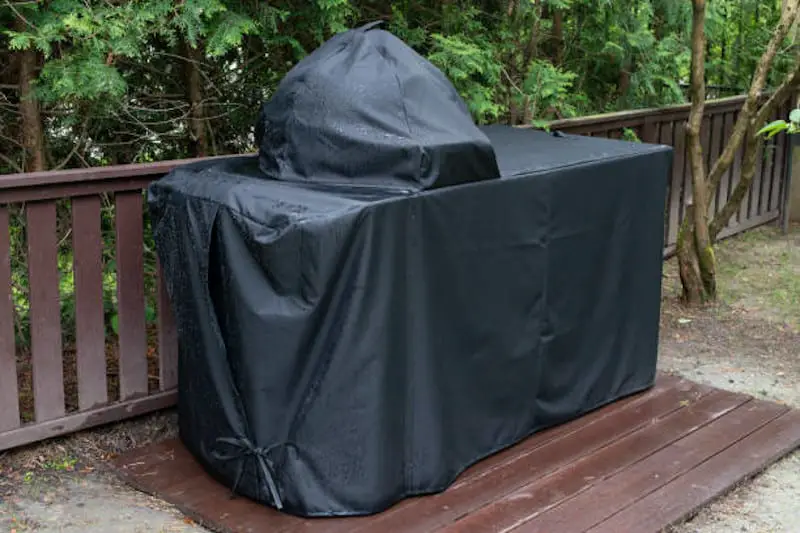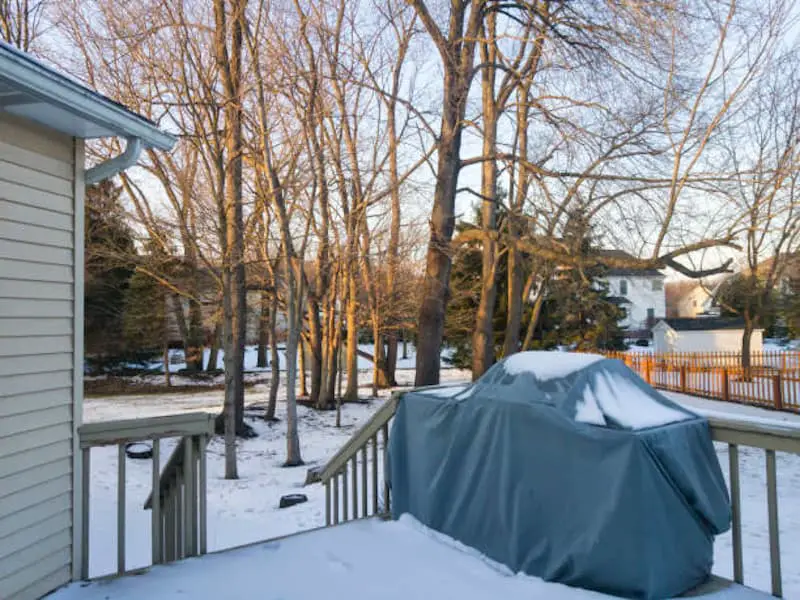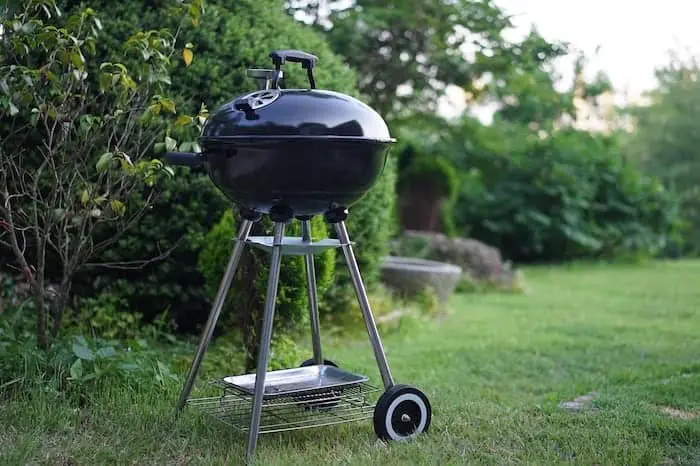
Ideally, Weber grills are built to last, from their charcoal, gas, stainless steel to portable grills. The company offers up to 10 years warranty for the grills. This goes to show the trust they have on their products to last for long.
So exactly how long do Weber grills last? Well, if you tend to use your grill regularly, it can last for a minimum of 5 years. However, if the grill is neglected, that is, not used neither maintained, it can last for about 3 years only. Putting into account the variation, Weber grills, in general, tend to last for about 5- 10 years. That said though, the question on how long your grill will last is dependent on several things including your maintenance routine.
If you are a Weber grill owner or are looking to own one this article is for you. The article will look into practices to expand the shelf life of your grill, the life span of the different Weber grills, how to clean and maintain your weber grills, and other Weber Grills related issues. Keep reading to find out about other factors that determine the shelf life of your Weber grill.
Practices to Expand the Life of your Weber Grill
Although the shelf life of different types of weber grills differ, the following are common practices that can help extend the life of your grill.
Maintenance
No matter the kind of grill you have, if you do not invest in maintaining it, then it is bound to become dysfunctional within a short time.
One of the most effective ways to maintain your grill is by cleaning it after every grilling session. Make a habit of emptying the ash from charcoal grills and scarping off the grease and food remains from the grates before they build up.
Other than cleaning you can maintain your grill by keeping it covered and in a shelter away from conditions that promote rust. In case your grill already has rust, consider scraping off the rust and re-painting the grill. Further cleaning and maintenance practices will be discussed per the weber grills below.
Your Choice of Grill
The shelf life of your grill is indeed determined once you choose your type of grill. You may wonder how? Well, for starters, with the evolved technology, currently, there are different types of grills. Some grills come with additional features such as thermometers, side burners to name but a few
So what happens if these features brake or get damaged before the main body of the grill does? The entire grill becomes dysfunctional. This is especially severe if the warranty period is over.
Therefore, before purchasing a Weber grill you have to analyze the necessity of having grills with additional features. You have to put in mind the cost implication should the features get damaged. If the additional features cannot be replaced with spare parts then it is recommended you go for Webers without these features. Also, if you do not need these additional features then there is no point in purchasing a grill that requires them in the first place.
How long do Different Weber Grills Last?
Now that we know the tips for expanding the shelf life of our Weber grills in general, we need to understand that a Weber Charcoal Grill will differ from a Gas Grill and a Stainless Steel Grill.
Weber produces different categories of grills. This includes Charcoal, Gas, Stainless Steel, Portable and Electric Outdoor grill. We will look into each category to establish their specific life span.
Charcoal Grills

Weber charcoal grills are typically made of a simpler design as compared to gas grills. As such, ideally, this should make them less susceptible to damage. However, this is not the case, charcoal grills may not last as long as gas grills because of the smoke and fire that is produced when grilling.
The fire and smoke are usually very hard on the grill therefore accelerating the rate of damage on charcoal grills.
The charcoal grill with the longest life span is the Weber Smokey Mountain. This quality is as a result of its rust-resistant doors and legs. The Smokey Mountain has a ten-year warranty on the bowl, center ring and lid.
The plastic components of the grills have a 6-year warranty and the rest of the grill has a 2-year warranty. Given this combination, the Weber Smokey Mountain stands out as the Charcoal Grill from Weber with the longest life.
Gas Grills by Weber

Gas grills are built with detail for aesthetics as compared to charcoal grills. The former is also more expensive given the various integrated features. It is these features that make gas grills exposed to the risk of damage and hence a shorter life. That said, most gas grills are built to last for almost 10 years.
One of the best gas grills is the Weber Genesis II. This gas grill is made of a stainless steel grill and coated with a porcelain enamel cast iron. The Genesis II can last for up to 10 years, a solid decade.
Portable Grills
Portable grills are the other major category of grills by Weber. As the name suggests, these grills are meant to be used for movement from one place to another. This, therefore, makes them highly susceptible to damage.
However, to combat this, a portable grill is designed to be compact enough to be tossed in the boot of your car for the next cookout session. Therefore, the design is a great contributor to its long life span.
One of the best portable grills is the Weber Q1000 portable grill. The grill has no side tables, making the compact design to be upgraded. It is also very affordable.
The cast aluminum lid and cook box for the Weber Q1000, have a warrant for five years with a discoloration warrant for 2 years. The cooking grates, plastic components, and steel burning tubes have a warrant for 5 years. All other parts have a warrant for 2 years.
Stainless Steel Grills
Weber Stainless steel grill is among the most durable grills. However, it is not cheap. Its high cost can be a result of the additional features found in the grill. This includes a built-in thermometer, a lighted control knob, a tuck-away rotisserie system to mention but a few.
All the above features can specifically be found on the Weber Summit stainless steel grill. Other than those features, this grill reduces the risks of flare-ups by cooking the food and not heating the air. The Weber summit has a 10-year warranty.
Weber Electric Grill Series
The cook box and lid for electric grills by Weber have a 5-year warranty and a 2-year discoloration warrant. The porcelain-enameled cast iron, cooking grates, and plastic component have a 5 years warranty. The heating element, on the other hand, has a 2-year warranty.
How to Clean and Maintain your Weber Grills?
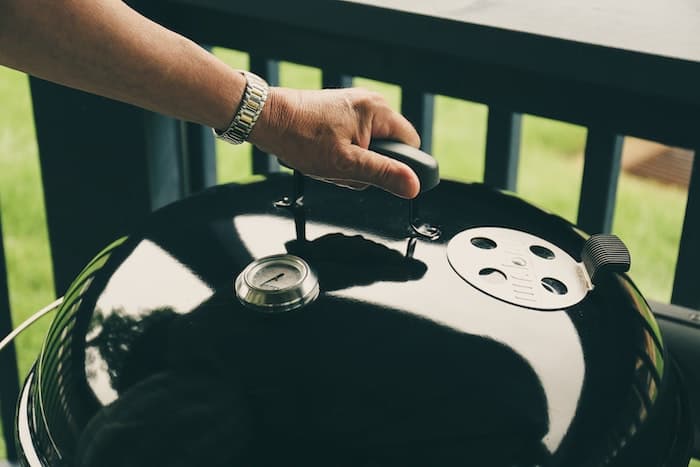
Cleaning Weber grills differ between the charcoal and gas grills. With the two methods highlighted other categories of grills such as stainless grills can apply either method
Charcoal Grills
When cleaning your charcoal grills start with the exterior parts of the grills. In this case, you will need soapy water, a stainless steel brush, a sponge and a scouring pad. Clean the exterior to get rid of any built-up grease, stains, dust, and other stubborn food remains.
Also, take that time to empty the ash from the bottom compartment. This will also come in handy when removing any fallen food remains.
Once you are done with exterior and it has dried up, move to the interior. Most of the dirt found on the interior consists of buildup from moisture and grease from the food you grill. Scrape off the grease using the stainless brush. Using warm soapy water and a sponge, clean any remaining grease and rinse the grill.
The next step is to remove the grates and use warm soapy water and a sponge to clean them. When you are done with the grates, clean the bottom department that you had previously emptied.
Gas Grill
Just like the charcoal grill, cleaning the gas grill start with the exterior parts of the grill. Use a paper towel to wipe the outside of the grill. If the grill has a porcelain-coated lid it is recommended you use a glass cleaner. For stainless steel grills using grain to baffle, the exterior will produce the best results.
When you are satisfied, the outside of the grill is clean, clean the side tables using a stainless steel brush or a microfiber.
Next is to clean the cook box which is part of the interior of gas grills. To do that, allow your grill to cool off after grilling. Once it is cool, carefully remove the cooking grates and flavorizer bars. With the cooking box empty, use a stainless steel grill to brush all excess grease and trash them into the tray at the bottom.
With all these steps followed, you can crank up your grill to burn off any potential food residue Allow the grill to heat for about 15 minutes then turn it off. Having done these you can rest assured your gas grill is clean and ready for the next grilling event
All said and done, the most effective method to maintain any type of grill is cleaning it regularly.
Related Article: Charcoal Grill Vs Gas Grill : Pros And Cons
Related Questions
1. What should I do if the igniter system on my Weber gas grill is broken?
First of all, the good news is that you do not have to toss your grill away just because the igniter is broken. Weber grills have evolved to enable you to light up your gas grill manually. You can find more information on how to manually lit up your grill on the weber website.
2. Can I use propane and natural gas interchangeably on my gas grill?
No, you are not allowed to use propane in a gas grill made for natural gas. To start, doing that exposes you to safety dangers. Moreover, for Weber grills using a gas different from the one stipulated may result to the warrant being revoked in case the gas grill gets damaged. Note that there is a high possibility that the grill gets spoilt.
3. What are the dangers of using a dirty Grill?
Using a dirty grill is a no for anyone looking to smoke their meal. First, it exposes you and everyone else partaking in the meal to potential food poisoning. You see when grease, debris, smoke, and oils build up on the grates, they eventually become toxic and a home for bacteria. As such, your fresh food gets into contact with these grates, it meets with the bacteria which may cause food poisoning. Food poisoning is only one of the consequences of using dirty grills but it is the most severe.
Related Article:
Can You Use Oven Cleaner On A Grill?
Weber Sear Station vs. Infrared Burner (Here Are the Difference)
5 Best Gas Grills For Beach House
4 Best Charcoals for Kamado Grill

